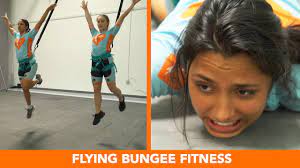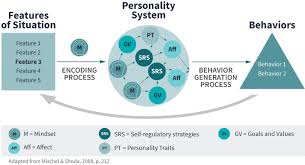The Benefits of Bodyweight Workouts
Bodyweight workouts have gained popularity in recent years as a convenient and effective way to stay fit and build strength without the need for equipment or a gym membership. These workouts involve using your own body weight as resistance to challenge your muscles and improve your overall fitness levels.
Here are some key benefits of incorporating bodyweight workouts into your exercise routine:
- Convenience: Bodyweight exercises can be done anywhere, anytime, making them perfect for those with busy schedules or limited access to a gym. Whether you’re at home, in a park, or traveling, you can still get a great workout in.
- Cost-effective: Since no equipment is required for bodyweight workouts, they are a budget-friendly option for fitness enthusiasts. You don’t need to invest in expensive gym memberships or bulky exercise machines to stay in shape.
- Versatility: There is a wide variety of bodyweight exercises that target different muscle groups and can be modified to suit all fitness levels. From squats and push-ups to planks and lunges, you can create a customized workout routine that meets your specific goals and preferences.
- Improves functional strength: Bodyweight exercises help improve your functional strength by engaging multiple muscle groups simultaneously. This translates to better performance in daily activities and reduced risk of injury.
- Burns calories and builds muscle: Bodyweight workouts are an effective way to burn calories, increase metabolism, and build lean muscle mass. They can help you achieve your weight loss or muscle-building goals when combined with proper nutrition.
If you’re looking for a convenient, cost-effective, and versatile way to stay fit and strong, consider incorporating bodyweight workouts into your fitness routine. With consistency and dedication, you can achieve great results and enjoy the numerous benefits that these exercises have to offer.
7 Essential Tips for Effective and Safe Bodyweight Workouts
- Start with a warm-up to prepare your body for exercise.
- Focus on proper form and technique to avoid injuries.
- Incorporate a variety of exercises to target different muscle groups.
- Progress gradually by increasing repetitions or difficulty of exercises.
- Listen to your body and rest when needed to prevent overtraining.
- Stay hydrated before, during, and after your workout.
- Include stretches at the end of your workout to improve flexibility.
Start with a warm-up to prepare your body for exercise.
Before diving into your bodyweight workout routine, it’s crucial to start with a proper warm-up to prepare your body for the physical demands ahead. A good warm-up helps increase blood flow to your muscles, raises your body temperature, and loosens up your joints, reducing the risk of injury during exercise. Incorporating dynamic movements like arm circles, leg swings, and light cardio can effectively prime your body for the workout ahead, ensuring that you perform at your best and get the most out of your bodyweight exercises.
Focus on proper form and technique to avoid injuries.
It is crucial to prioritize proper form and technique when engaging in bodyweight workouts to prevent injuries and maximize the effectiveness of each exercise. By maintaining correct alignment and posture throughout movements such as squats, push-ups, and planks, you not only reduce the risk of strains or sprains but also ensure that the targeted muscles are being properly engaged. Paying attention to form allows for a more efficient workout that yields better results over time while safeguarding your body from unnecessary stress. Remember, quality repetitions with proper technique trump quantity when it comes to bodyweight exercises.
Incorporate a variety of exercises to target different muscle groups.
To maximize the effectiveness of your bodyweight workouts, it is essential to incorporate a variety of exercises that target different muscle groups. By diversifying your routine with exercises such as squats, push-ups, lunges, planks, and burpees, you can ensure that all major muscle groups are engaged and challenged. This approach not only helps prevent muscle imbalances but also promotes overall strength development and functional fitness. Remember, variety is key to achieving well-rounded results and maintaining motivation in your fitness journey.
Progress gradually by increasing repetitions or difficulty of exercises.
To maximize the effectiveness of bodyweight workouts, it is essential to progress gradually by either increasing the number of repetitions or advancing the difficulty of exercises over time. By gradually challenging your muscles and cardiovascular system, you can continue to see improvements in strength, endurance, and overall fitness levels. This progressive approach not only prevents plateaus but also helps you avoid injuries by allowing your body to adapt and grow stronger at a manageable pace. Remember, consistency and gradual progression are key factors in achieving long-term success with bodyweight workouts.
Listen to your body and rest when needed to prevent overtraining.
Listening to your body and recognizing when it needs rest is crucial when engaging in bodyweight workouts to prevent overtraining. Pushing yourself too hard without allowing for adequate recovery can lead to fatigue, decreased performance, and an increased risk of injury. Rest is an essential component of any fitness routine as it gives your muscles time to repair and grow stronger. By paying attention to your body’s signals and incorporating rest days into your workout schedule, you can maintain a healthy balance and continue making progress towards your fitness goals safely and effectively.
Stay hydrated before, during, and after your workout.
It is essential to stay hydrated before, during, and after your bodyweight workout to maintain optimal performance and support your body’s recovery process. Hydration plays a crucial role in regulating body temperature, lubricating joints, and transporting nutrients to muscles. Drinking an adequate amount of water before your workout helps prevent dehydration and ensures that you have enough energy to complete your exercises effectively. During your workout, sipping water at regular intervals helps replace fluids lost through sweat and prevents fatigue and cramping. After your workout, hydrating helps with muscle recovery and replenishes lost fluids, aiding in the repair and growth of muscle tissues. Remember to listen to your body’s signals and drink water consistently throughout your workout session for better overall performance and well-being.
Include stretches at the end of your workout to improve flexibility.
Including stretches at the end of your bodyweight workout is essential for improving flexibility and overall mobility. Stretching helps lengthen the muscles that have been contracted during exercise, reducing the risk of injury and promoting better range of motion. By incorporating stretching exercises into your routine post-workout, you can enhance your flexibility, prevent muscle stiffness, and aid in muscle recovery. Remember to hold each stretch for at least 15-30 seconds to allow the muscles to relax and elongate effectively.




